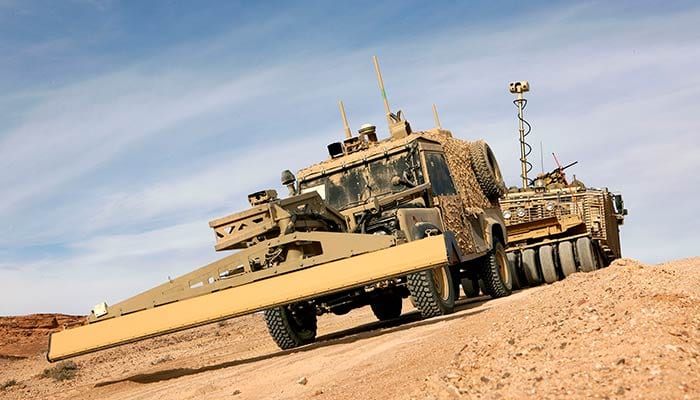Following lessons learned in recent operations, the NATO Commands developed military requirements to provide the NATO Response Force (NRF) with a force protection capability that allows them to conduct operations in a high-threat Improvised Explosive Device (IED) environment.
The objective is to provide the NRF Deployable Headquarters (HQ) with a Counter-Improvised Explosive Devices (C-IED) protection capability that is flexible, highly deployable, interoperable, scalable and sustainable in all potential NRF scenarios.
The NATO Communications and Information Agency (NCI Agency) intends to issue an Invitation for Bid (IFB) to provide Electronic Countermeasure (ECM) systems against Radio-Controlled Counter Improvised Explosive Devices (RCIEDs).
This upcoming opportunity is anticipated to encompass the provision of three vehicular and three static ECM systems against RCIEDs.
Potential U.S. prime contractors must have an active facility within the U.S.; be pre-approved for participation in NATO International Competitive Bidding (NATO ICB); and be nominated to the bidders list by the U.S. Government.
NATO requires that the U.S. Government nominate U.S. prime contractors to the bidders list. Before the U.S. Government can nominate a U.S. prime contractor to the bidders list, however, the U.S. firm must be approved for participation in NATO ICB. Firms are approved for U.S. NATO ICB on a facility-by-facility basis.
It is expected that the C-IED screening capability for the NATO Response Force will be implemented within 12 months from the Effective Date of Contract, followed by one year of initial support, plus contractual options for the provision of extended operational, maintenance and training support.
Additional requirements are detailed in FBO.gov Solicitation Number: IFB-CO-14786-NRF.


